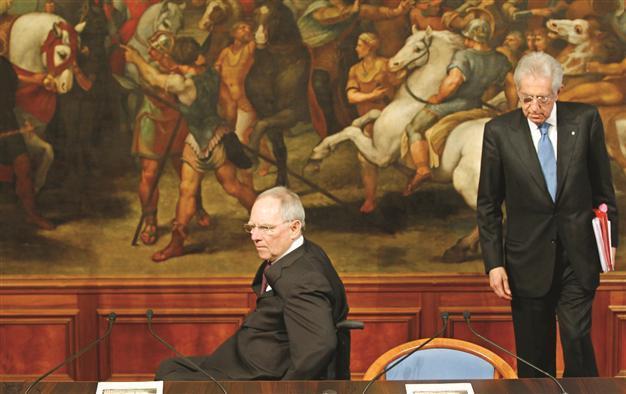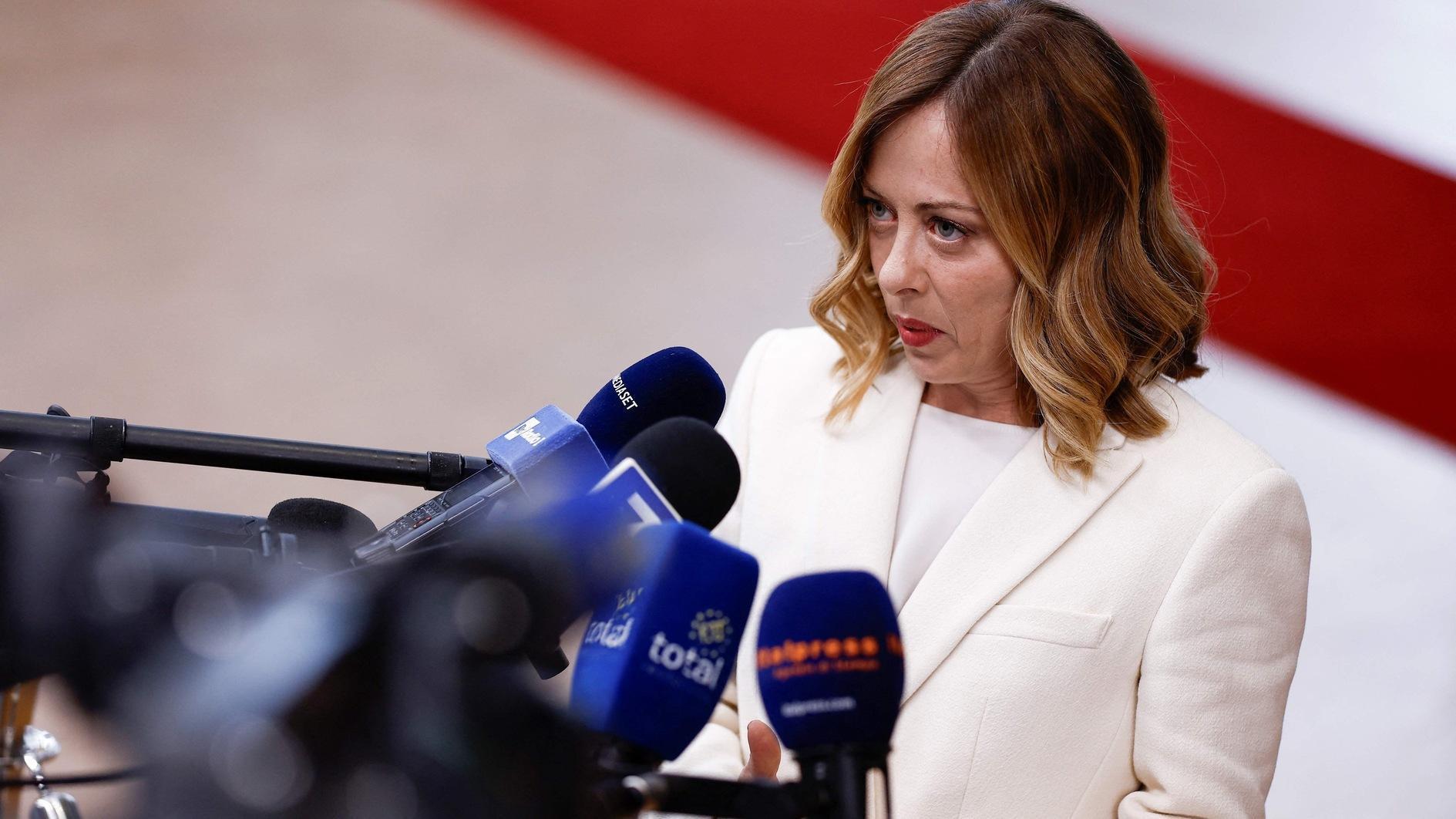Eurozone likely to almost double size of bailout funds
COPENHAGEN - Reuters

Germany’s Finance Minister Schaueble (L) arrives to attend a news conference with Italy’s Prime Minister Monti (R) during a meeting at the Chigi palace in Rome. REUTERS photo
Eurozone finance ministers agreed on March 30 to raise their financial firewall to prevent a new flare-up of Europe’s sovereign debt crisis, but it was unclear if markets and Europe’s G20 partners would see the boost as sufficient.The 17-nation currency area agreed to combine its two rescue funds to make 500 billion euros of new funds available in case of emergency until mid-2013, on top of the 200 billion euros already committed to bailouts for Greece, Ireland and Portugal.
The executive European Commission had proposed raising the total amount to 940 billion euros, of which 740 billion would have been as yet uncommitted funds, but EU paymaster Germany resisted a higher number.
“[The] decision is a classic European compromise. It was as far as the German government was willing to go and it was the minimum most other eurozone countries were expecting,” said Carsten Brzeski, economist at ING Bank in Brussels. “Obviously, a bigger increase along the lines of earlier discussed options could have sent a stronger signal and would have been more convincing.”
“With [this] increase, the role of the European Central Bank (ECB) as the eurozone fire brigade is likely to continue.”
An official statement said ministers had lifted the combined lending capacity of the temporary European Financial Stability Facility (EFSF) and the permanent European Stability Mechanism (ESM) to 700 billion euros from 500 billion.
“The current overall ceiling for ESM/EFSF lending ... will be raised to 700 billion euros,” it said. “All together, the euro area is mobilizing an overall firewall of approximately 800 billion euros, more than $1 trillion.”
However, the highest headline number included money already disbursed from the EFSF, a smaller bailout fund controlled by the European Commission and bilateral loans which eurozone countries extended to Greece under the first bailout.
The 500 billion euros in fresh lending capacity for the combined funds until July 2013 takes account of the fact that the ESM will not start its operations at full capacity, but only grow into it as capital is paid in over three years.
It means 240 billion of uncommitted funds in the EFSF could be tapped if necessary until the ESM becomes bigger.
French Finance Minister Francois Baroin said the decision gave Europe a stronger hand to persuade other major economies to increase the International Monetary Fund’s (IMF) resources to fight contagion from the euro crisis if necessary.
“We are now in a strong position for discussion on the IMF in April. It is a good signal,” Baroin said.
Some bond market players questioned whether the compromise would provide sufficient money to help Spain, the eurozone’s number four economy, if it needs a bailout to overcome a banking crisis due to the collapse of a real estate bubble.
“At the end of the day the key question is whether this new firepower is enough,” said Steve Barrow, head of G10 strategy at Standard Bank in London. “Clearly if things turn down again, and especially if more bailouts are needed, the tricky issue of underfunding the ESM/EFSF relative to the potential bailout need is bound to resurface.”
After tempers flared, Eurogroup chairman Jean-Claude Juncker called off a scheduled news conference, saying Austrian Finance Minister Maria Fekter had already announced the outcome.
Juncker said the appointment of a new ECB executive board member had been postponed until mid-April. He had earlier said fellow Luxembourger Yves Mersch was the strongest candidate for the job.
The delay may have been due France’s request to hold off on choosing a successor to Juncker as Eurogroup chairman until after the April-May French presidential election.
Diplomats said French President Nicolas Sarkozy wanted to avoid political embarrassment from the likely choice of German Finance Minister Wolfgang Schaeuble, which his opponents could portray as a sign of German dominance.
Commerzbank analyst Christoph Weil said the firewall boost, combined with extra assistance from the IMF, would probably be big enough to “offer shelter to Spain and Italy if necessary.”
“Nonetheless, there is reason to fear that investors will remain sceptical and continue to demand high risk premiums for peripheral bonds,” he wrote in a note.
















